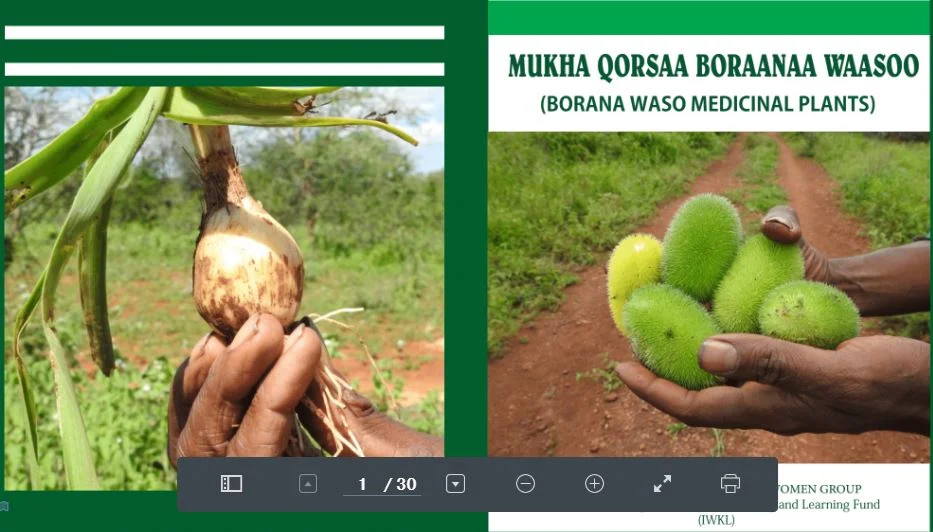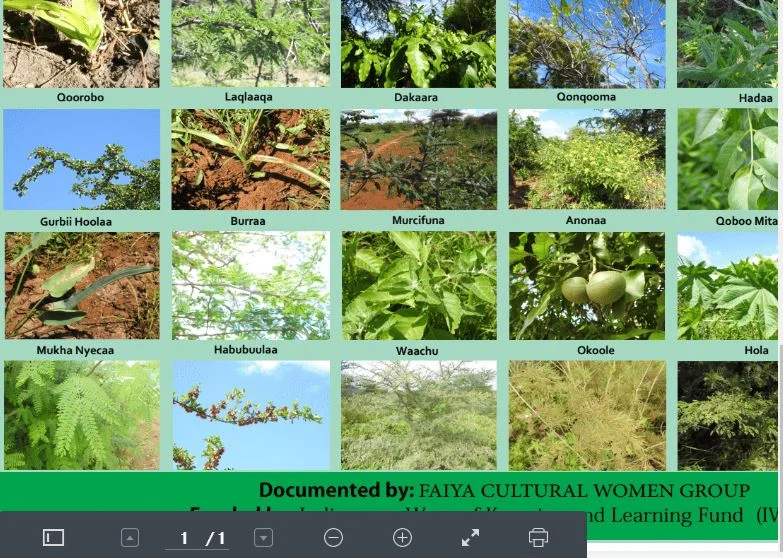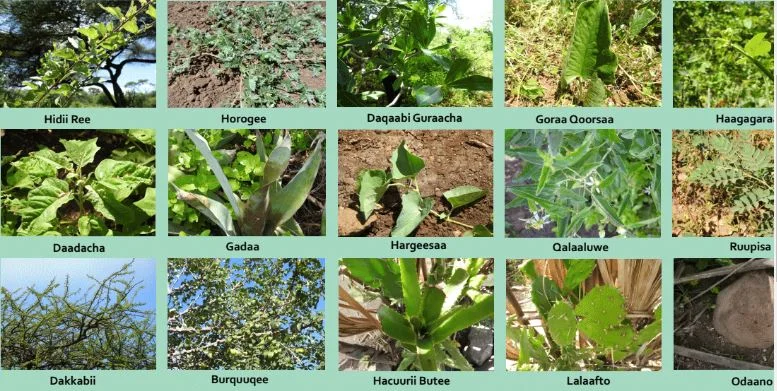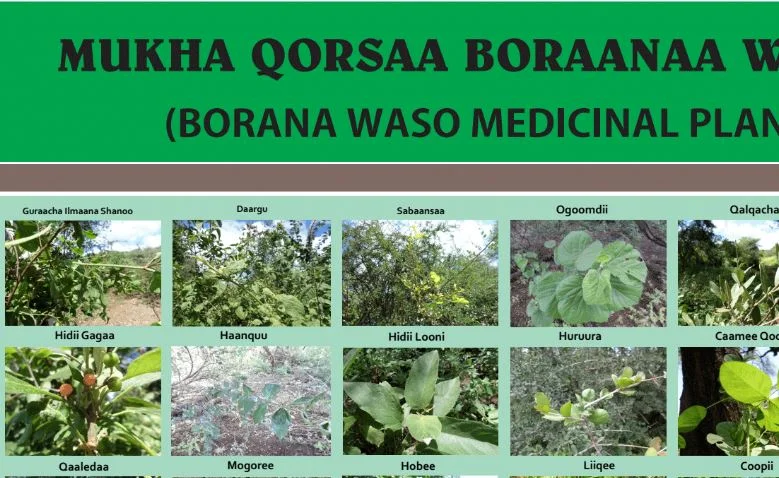
The Boran Waso peoples live in Northern Kenya. Traditional healing is one facet of their culture and medicinal plants abound in their pastoralist communities. To revitalize this tradition and sustain the environment from which they derive their healing resources, the Faiya Women’s Group embarked on a project that mapped the whereabouts of their healers and their expertise.
Traditional healers were sought out and identified by location, age, and gender, making it easier to access them. They were registered as traditional healers and recognized by both the community and government institutions, an action which resulted in wide acceptance and validation of their healing systems. Healers involved in the treatment of specific ailments were identified along with the corresponding healing procedures they each perform. Meetings with government medical institutions and policy-makers enabled traditional healers to understand laws that govern the use of medicinal plants.

In order for tradition to be perpetuated, knowledge has to be transferred. School children in culture clubs were trained in ethno-medicine by traditional healers during their school holidays using nature trails. These children and the children of traditional healers exchanged knowledge and experiences on traditional medicines. The valuable transfer of traditional healing knowledge and practice from the elders to thirty (30) school children cannot be understated. These children may be the future traditional healers of their communities and an herbarium for medicinal plants was established in the form of charts for their easy, systematic, and effective learning. The Faiya Women’s Group documented Waso medicinal plants and their healing effects and published these as charts and small books.
Traditional healers in the different Waso regions undertook to collect and press medicinal plants in order to establish their own botanical gardens for better accessibility by the communities. The numerous medicinal plants collected illustrated the wealth of species of medicinal plants available to those in need. A botanic garden for indigenous species of medicinal plants was the logical direction for their propagation and sustained use.

The documentation identifies and cross-references different kinds of ailments and corresponding traditional healers for these illnesses, noting their respective healing processes. Healing processes and methods were shared through short stories in video format. Throughout the project, this documentation aimed at demonstrating and disseminating the efficacy of such traditional practices. Likewise, the project documented healing processes conducted during the knowledge transmission sessions with elders and culture club children.
Subsequently, six traditional healing centers were established to provide wider access to those needing treatment. An association of traditional healers was registered to enhance recognition by the government’s health department and further strengthened relationships among traditional healers and their abilities.

The topography of the vast region is such that accessibility to some areas posed challenges during implementation, and some target populations were not able to participate. While those who were involved in the entire project appreciated the positive impacts and results, some community members perceived traditional healing as outdated and leaned towards the modern conventional healing system.
Because a majority of the communities expressed a sense of ownership and commitment, proper and effective sustainability of the project is expected. Committed and competent people involved in all aspects of project implementation assure the continuing revival of a traditional practice that is healing and revitalizing Boran Waso culture.
The project “Revitalizing, Value-adding and Applying Boran Waso Traditional Healing in Northern Kenya” was implemented by the Faiya Women’s Group with the support of Pawanka Fund in 2018.
